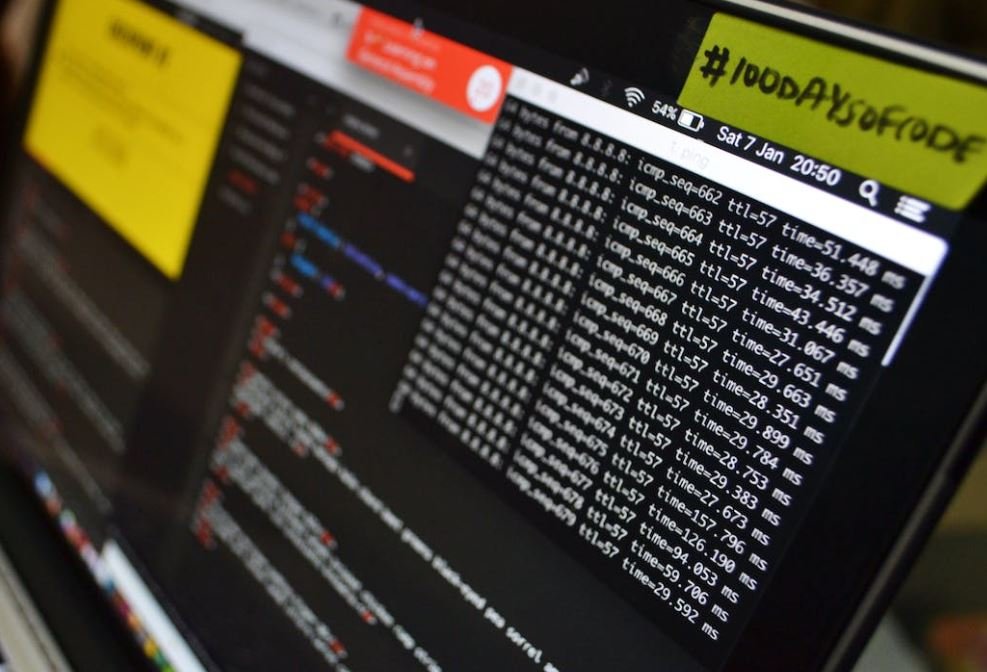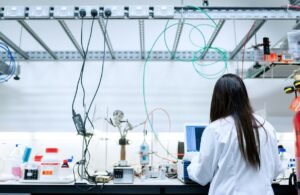AI Improves Song Quality
Artificial Intelligence (AI) is revolutionizing the music industry in various ways. From assisting with songwriting to enhancing the production quality, AI technologies are playing a significant role in shaping the future of music. One particular area where AI is making a noticeable impact is in improving song quality.
Key Takeaways:
- AI technologies are enhancing song quality by improving aspects such as audio mixing, mastering, and overall production.
- Automated audio analysis and processing algorithms help identify and correct audio imperfections.
- AI can generate realistic virtual instruments and enhance vocals to produce more polished and professional-sounding songs.
AI algorithms are designed to analyze and process audio signals with great precision, allowing them to identify and correct imperfections in a song’s quality. These imperfections can range from minor issues like background noise or slight pitch variations to more complex problems like imbalanced audio mixing. By leveraging machine learning techniques, AI-powered software and tools can automatically recognize and address these issues, resulting in a significantly improved song quality.
One fascinating application of AI in song quality improvement is the generation of virtual instruments. AI models are now capable of creating realistic virtual instruments, indistinguishable from their real-life counterparts. This ability eliminates the need for expensive recording sessions with live musicians and allows artists to compose and produce music with a wide range of instrumental options. With AI-generated virtual instruments, the quality of music production has increased remarkably, opening up new creative avenues for artists.
In addition to virtual instruments, AI offers advanced vocal processing capabilities. By analyzing vocal recordings, AI algorithms can enhance vocal performances by correcting pitch inaccuracies, smoothing out rough edges, and even emulating the sound characteristics of different recording environments or famous singers. These advancements in vocal processing have resulted in songs with more polished and professional-sounding vocals, elevating the overall quality of the music.
Furthermore, AI technologies have simplified the audio mastering process. Mastering is the final step in music production, aimed at ensuring that a track sounds coherent, balanced, and consistent across different listening devices and environments. Traditionally, audio mastering has been a time-consuming and expensive process requiring specialized expertise. However, AI-powered mastering tools now automate this process, providing artists with quick and affordable solutions. These tools employ machine learning algorithms trained on vast amounts of audio data to analyze and optimize the audio for various listening scenarios, ultimately improving the song quality.
AI in Song Quality Improvement – Interesting Data Points:
| AI Technology | Data Points | Benefits |
|---|---|---|
| Automated Audio Analysis | – Identifies audio imperfections – Corrects pitch and timing issues – Balances audio mixing |
– Improved audio quality – Time-saving for artists/producers |
| Virtual Instruments | – AI-generated realistic instrument sounds – Wide array of instrument options – Cost-effective music production |
– Increased creative possibilities – Reduced production expenses |
| Vocal Processing | – Corrects pitch inaccuracies – Enhances vocal performance – Emulates different recording environments |
– Professional-sounding vocals – Diverse vocal effects |
This integration of AI in the music industry has led to significant improvements in the quality of songs. From audio mixing and mastering to virtual instruments and vocal processing, AI technologies offer a range of benefits for artists and producers. By leveraging these advancements, musicians can enhance their creative output and deliver more professional and polished tracks to their listeners. As AI continues to evolve, we can expect even more exciting developments in the quest to improve song quality.

Common Misconceptions
Misconception 1: AI can replace human creativity in music production
It is often believed that AI can completely replace human creativity in music production, leading to the misconception that AI can create songs without any human involvement. However, this is not true. AI can assist in certain aspects of music production, but it cannot replicate the unique creativity and emotional depth that humans bring to music.
- AI can analyze existing songs and patterns to generate new ideas
- AI can help in automating certain repetitive tasks in music production
- AI can be used as a collaborative tool for musicians and producers to enhance their creativity
Misconception 2: AI can only reproduce existing music styles
Another common misconception is that AI can only reproduce existing music styles instead of creating something new. While AI can be trained on a dataset of existing songs to analyze and generate music in similar styles, it is not limited to only reproducing what it has learned. AI algorithms have the ability to learn, adapt, and create new musical ideas that may not have been heard before.
- AI can generate new melodies and chord progressions in various styles
- AI can combine elements from different genres to create unique and innovative music
- AI can be used as a source of inspiration for musicians to explore new musical avenues
Misconception 3: AI can replace musicians and singers
There is a misconception that AI can replace musicians and singers, making them obsolete in the music industry. However, AI is not capable of replicating the depth, emotion, and expression that human musicians and singers bring to their performances. While AI can simulate certain aspects of playing an instrument or singing, it lacks the human touch and connection that is essential in music.
- AI can help in generating instrumental tracks for musicians to work on
- AI can assist singers in improving their vocal technique and providing vocal harmonies
- AI can be used to enhance live performances with real musicians and singers
Misconception 4: AI can accurately determine the quality of songs
Many believe that AI can accurately determine the quality of songs by analyzing various factors such as tempo, pitch, and structure. However, determining the quality of a song is a subjective matter that goes beyond technical analysis. AI algorithms might be able to provide certain insights, but the final judgment of a song’s quality ultimately lies in the ears and emotions of the listeners.
- AI can provide objective analysis of technical aspects in a song
- AI can assist in identifying patterns and trends in music preferences
- AI can be used as a tool for music critics to supplement their evaluations
Misconception 5: AI will replace the role of music producers
There is a misconception that AI will replace the role of music producers in the industry. Although AI can assist in certain production tasks such as mixing and mastering, the role of a music producer is much more than just technical skills. Producers bring unique creative visions, artistic guidance, and the ability to understand and nurture the artists’ vision, which cannot be replicated by AI.
- AI can automate repetitive production tasks to increase efficiency
- AI can assist in suggesting production ideas based on previous successes
- AI can be a valuable tool for music producers in exploring new sounds and styles

AI Improves Song Quality with Advanced Algorithms
Song quality has always been a crucial aspect of the music industry, captivating listeners and leaving a lasting impact. With advancements in artificial intelligence (AI) technology, musicians and producers now have access to powerful algorithms that can enhance the quality of songs in numerous ways. The following tables reveal the astounding capabilities of AI in improving various facets of song production.
Enhancing Vocal Performance
AI algorithms can analyze vocal recordings and make precise adjustments to enhance a singer’s performance. By automatically correcting pitch, timing, and tone, AI significantly improves the overall quality of vocals in a song.
Transforming Instrumental Tracks
AI can transform ordinary instrumental tracks into extraordinary compositions. By applying complex algorithms, AI can enhance the richness of tones, add new dimensions to melodies, and even create unique instrumentations.
Generating Catchy Melodies
Using AI algorithms, musicians can quickly generate catchy melodies that capture listeners’ attention. By analyzing patterns in existing songs and tapping into vast musical databases, AI can produce captivating melodies that resonate with audiences.
Optimizing Sound Mixes
AI algorithms excel at optimizing sound mixes, ensuring a perfect balance between different audio elements. By analyzing frequencies, volume levels, and spatial positioning, AI can create harmonious soundscapes that immerse listeners in the music.
Improving Song Structures
AI algorithms can help musicians refine their song structures by suggesting alterations that enhance the overall flow and impact. By analyzing popular song structures and listener preferences, AI offers valuable insights that artists can leverage to create memorable compositions.
Enhancing Dynamic Range
AI can help musicians and producers enhance the dynamic range of their songs, making them sound more vibrant and emotive. Through advanced algorithms, AI identifies areas that could benefit from volume and range adjustments, resulting in a more compelling listening experience.
Eliminating Noise and Interference
Noise and interference can significantly diminish the quality of a song. AI algorithms are adept at removing unwanted noise, hisses, and hums, resulting in cleaner audio recordings and ultimately enhancing the overall song quality.
Recognizing and Adapting to Genres
AI algorithms possess the ability to recognize different music genres and adapt their enhancements accordingly. Whether it’s enhancing heavy basslines for EDM tracks or adding subtle reverb for acoustic ballads, AI optimizes song quality based on genre-specific norms and expectations.
Providing Real-Time Feedback
AI can provide musicians with real-time feedback on their performances. Using advanced audio analysis, AI algorithms can identify areas of improvement, allowing artists to refine their techniques and take their songs to new heights.
Collaborating with Human Creativity
AI technology can be a powerful collaborator for musicians, enhancing their creative output rather than replacing it. By working hand in hand with human creativity, AI helps artists explore new possibilities, experiment with unique styles, and refine their artistic vision.
In today’s music industry, AI has proven to be an invaluable tool for musicians and producers alike. Its ability to enhance various elements of song production, from vocal performances to sound mixes, opens up endless possibilities for creating high-quality, captivating music. Whether providing real-time feedback or generating catchy melodies, AI’s impact on the music landscape is undeniable.
Frequently Asked Questions
Can AI technology improve the quality of songs?
Yes, AI technology can enhance the quality of songs by applying various algorithms and techniques to modify and refine different aspects of the audio, such as noise reduction, audio restoration, sound equalization, and more.
How does AI improve song quality?
AI improves song quality by using machine learning algorithms to analyze and understand audio patterns. It can then make intelligent adjustments to eliminate imperfections, enhance vocals or instrumentals, adjust audio levels, and improve overall sound fidelity.
What tools or software are used to improve song quality with AI?
There are various tools and software available for improving song quality with AI, such as audio editing software integrated with AI capabilities, plugins that utilize AI algorithms for audio processing, and standalone AI-based applications designed specifically for audio enhancement.
Can AI significantly enhance the audio quality of low-quality recordings?
AI can certainly improve the audio quality of low-quality recordings to some extent, depending on the specific limitations of the original recording. However, it is important to note that AI cannot work miracles and bring a poorly recorded song to the same audio quality as a professionally recorded one.
Are there any limitations to AI-based song quality improvement?
Yes, there are some limitations to AI-based song quality improvement. AI algorithms heavily rely on the available dataset for training, so if the dataset is not diverse enough or lacks certain characteristics, the AI model may not be able to perform optimally for all types of songs. Additionally, AI algorithms may introduce artifacts or unwanted changes if not used properly.
Is AI capable of improving the quality of all genres of music equally?
AI can be applied to improve the quality of songs across various genres; however, the effectiveness of AI algorithms might vary depending on the specific characteristics of each genre. Therefore, while AI can generally enhance song quality, it may produce differing results based on the genre and style of the music.
Can AI make a song sound different from the artist’s original vision?
Yes, AI has the potential to modify the sound of a song from the artist’s original vision. Depending on the specific algorithms used and the desired outcome, AI can alter aspects of the audio, such as tone, vocals, instrumentals, and more. However, it is worth noting that AI can also be used to faithfully preserve and enhance the original audio without significant alterations.
Do AI-based song improvements require extensive technical knowledge?
While some advanced AI-based audio processing techniques require technical knowledge, there are user-friendly tools and software available that simplify the process of improving song quality with AI. These tools often provide intuitive interfaces and presets that allow users with minimal technical expertise to achieve satisfactory results.
Is the use of AI for song quality improvement widely adopted in the music industry?
AI-based song quality improvement techniques are increasingly being adopted in the music industry. Many musicians, producers, and audio engineers utilize AI tools and software to enhance their recordings, improve sound quality, and optimize the audio mixing/mastering process. However, traditional methods of audio processing and production techniques still hold significant importance.
Where can I learn more about using AI to improve song quality?
There is a wealth of resources available online that provide information and tutorials on using AI to improve song quality. Websites, forums, and online communities dedicated to music production and audio engineering often feature discussions, articles, and video tutorials on this topic. Additionally, there are online courses and educational platforms that offer in-depth training on AI-based audio processing techniques.




